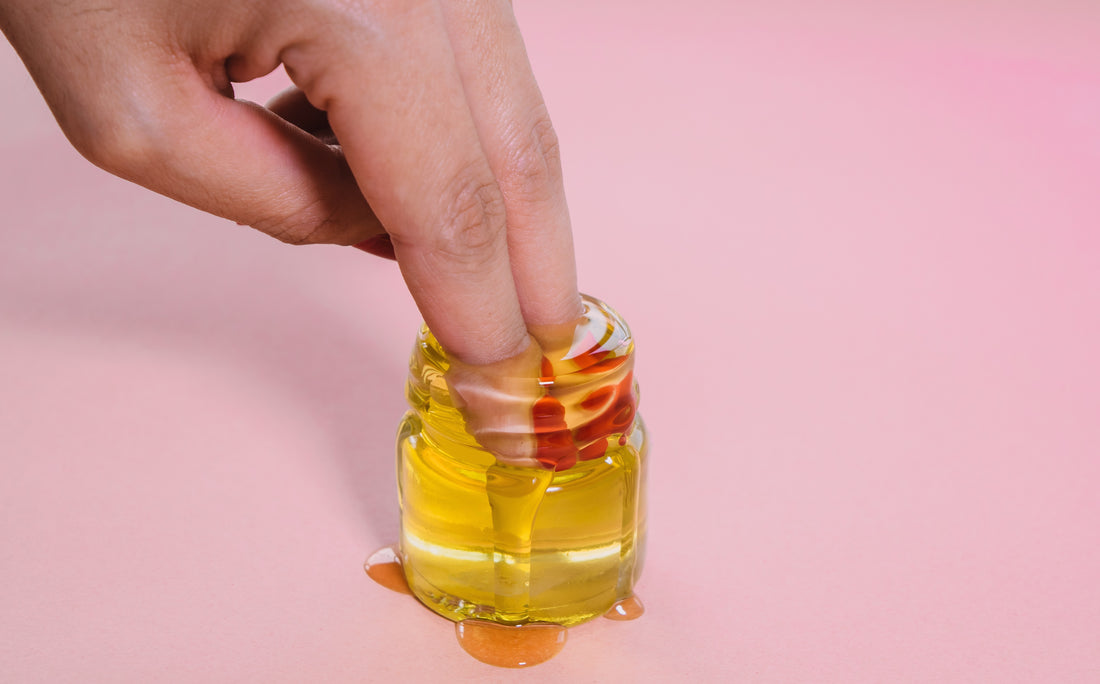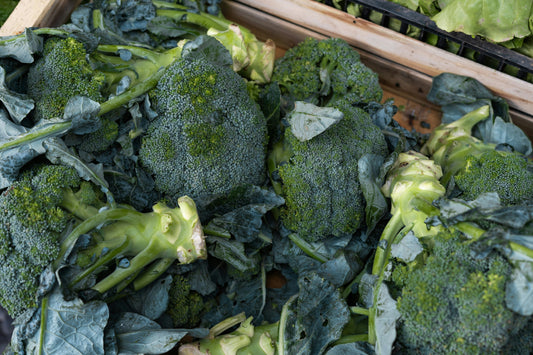With shelves full of different oils, it’s often hard to know which one you should cook with, put on your salads, put in your hair, or not touch at all. So, let’s start from the beginning.
Oils are made of fats. There are three main types of fats; Saturated, mono-unsaturated, and poly-unsaturated. All these fats share a similar chemical structure: A long chain of carbon atoms bound to hydrogen atoms. What makes one type different from the other is the length and shape of the carbon chain and the number of hydrogen atoms connected. These seemingly small differences make a huge difference in form and function. Saturated fats are the most stable and resistant to change under heat, whereas mono and poly-unsaturated fats can undergo chemical changes at lower heats, creating potentially harmful by-products.
To make things slightly more confusing, it’s important to know that oils are a mixture of saturated, mono-unsaturated, and poly-unsaturated fats. It is the ratio that you need to be aware of. So with all that behind us, let’s talk about which oils to use, how to use them, and which ones to stay away from.
Extra virgin olive oil (EVOO): This oil comes from the first press of olives and is naturally extracted using no heat or chemicals. To be labelled ‘extra virgin’, it must have no defects. EVOO has high levels of mono-unsaturated fats (approximately 73%) and polyphenols, which means our body loves it - especially our cardiovascular system (in moderation, of course). Despite common misconceptions, EVOO is actually safe to heat (up to 180 degrees). However, to make the most out of its nutritional benefits I recommend having it uncooked - such as drizzled over salads or used as a dip. Make sure your olive oil is stored in a dark glass or metal tin - light is the enemy. If you’re buying it in a clear glass bottle, try to grab one from the back of the store shelf where it’s darker. Once home, transfer it into a dark glass or metal container and keep it in a cool area out of direct sunlight.
Avocado oil: Avocado oil is similar in composition to olive oil, but with a slightly lower percentage of monounsaturated fats (70%) and a slightly higher percentage of saturated fat. However, avocado oil is higher in vitamin E and chlorophyll, which means it is very sensitive to oxidation (this degrades the quality of the oil). Therefore it is important to store the oil away from light. Avocado oil has a high smoke point, which means its robust flavour will be retained throughout the cooking process and it won’t become harmful to your health when used at high heats. However, I wouldn’t recommend using it above 250 degrees celsius. But again, the higher you heat it the more nutritional content you will lose.
Coconut oil: This oil is made up of predominantly saturated fats (approximately 90%), which makes it super stable and great for cooking at high temperatures. However, although it’s stable when heated, it’s not free from oxidative damage. Oxygen will react and break down coconut oil over time, so be sure to store it in an airtight container. When stored on the shelf coconut oil can turn into a liquid - especially in summer. This does not mean it has gone off. Because of the fatty acid composition of this oil, it has a low melting point of about 24 degrees celsius.
Butter: Butter is made up of approximately 50% saturated fat and 25% monounsaturated fat. With the smoke point of butter being at 150 degrees celsius and poor oxidative stability, it is easily oxidized and broken down when exposed to light and high heat. Butter should, therefore, be stored in the fridge or at room temperature away from the light. Butter is ideal for baking, but should not be used at high temperatures. However, butter is a natural, nutrient providing product with no preservatives, colours, or flavours, and as a bonus, it’s not packaged in plastic. So it is a great source of fat when consumed fresh or after exposure to low heat.
Lard: This is a fat derived from pigs and has a monounsaturated fat content of 45% and saturated fat content of 40%. Although you may think of lard as having a bad rep, the high mono-unsaturated fat content provides cardiovascular protective qualities, and as an added bonus, lard also provides a dose of vitamin D - with the amount determined on the pigs exposed to the sun. Lard has a smoke point of 190 and is relatively stable under medium to high heat, therefore lard is ideal for high heat and frying. When buying lard, ensure you buy organic, grass-fed pork lard.
Canola oil (rapeseed oil): To cut a long story short, you can quickly rule out a large portion of heavily processed polyunsaturated vegetable oils, including canola oil. Canola oil is produced as a result of plant crossbreeding. Most canola crops are genetically modified to increase plant tolerance to herbicides. Although these crops produce canola oil for human consumption, it is also used as a fuel alternative to diesel and a component of tires. Canola is a very poor source of nutrients and easily damaged when the heat is applied. It also has a high ratio of inflammatory omega 6 fatty acids. My advice: Avoid.
Rice bran oil: This is produced from the outer brown layer of rice, known as the rice husk. Rice bran oil is highly refined and although there are some studies that suggest it provides health benefits, its ratio of polyunsaturated omega-6 fatty acids to omega 3 fats is 20:1, which is enough of a reason alone to avoid it. At most, omega 6 fatty acids should be at a 4:1 ratio with omega 3 (1:1 is optimal). As high levels of omega 6 fatty acids are highly inflammatory and can have huge implications on your long-term health, I suggest rice bran oil is one you avoid.
Sunflower oil: Sunflower oil is extracted from sunflower seeds via chemical solvents or direct pressure. It is highly refined and through these processes, it loses a lot of its nutritional content. Sunflower oil consists of 70% polyunsaturated fats, with 100% of these being omega 6 fatty acids. As stated above, such a high level of omega 6 fatty acids can have a huge inflammatory effect on the body. I suggest sunflower oil is another one you avoid.
Although they can be expensive, good oil is something I recommend you invest it. Most of us consume it quite frequently, so it makes sense to consume wisely. Try to avoid the cheap and nasty processed vegetable oils. Use either coconut oil or lard to cook with at high heats, and try to consume some good quality, unheated extra virgin olive oil or avocado oil where you can.




